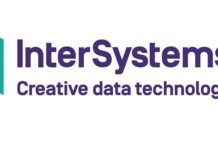The first installment of a benchmark report on worldwide cancer research activity was unveiled by Elsevier, a world-leading provider of scientific, technical and medical information products and services. The report, designed to help inform and extend the effectiveness of the White House National Cancer Moonshot Initiative, together with an online Cancer Moonshot Resource Center, are part of Elsevier’s efforts to support the advancement of cancer research in general.
“With the number of cancer cases projected to nearly double over the next 20 years, we understand the unprecedented urgency to control cancer by deploying all available advantages that might spur research breakthroughs,” said Brad Fenwick, PhD, Elsevier’s Senior Vice President for Global Alliances and project lead of the Cancer Moonshot Resource Center. “Cancer has touched all of us, and we are most proud to contribute our expertise on scientific research to significant coordinated efforts to prevent and treat cancer.”
The benchmark report provides an overview of the world’s cancer research landscape. Data and analyses come from Scopus, a database of nearly one million global peer-reviewed publications and scientific proceedings, and Elsevier’s Research Intelligence solutions. Key findings of the report’s first installment include:
The impact of cancer remains high, and the number of cases are projected to nearly double over the next 20 years as the global population gets older. In many US states, cancer is now the leading cause of premature death.
US cancer research is strong and highly valued worldwide, producing the greatest share of global output in the field and hosting a large percentage of the world’s leading cancer research institutions.
China has increased substantially publication output in cancer research and today has more than 17 percent of the global share of cancer research publications, up from around five percent a decade ago.
This report is intended for use in making informed decisions about investments to accelerate cancer research activities while mitigating some of the challenges involved in the Task Force’s goal to “achieve a decade’s worth of advances in five years.”
“After the incoming administration develops its priorities for its support for the initiative, we are looking forward to continuing to produce additional installments of the benchmark report,” Dr. Fenwick said. “The nature and number of installments is not set and will be informed by input from the community and an advisory board. We anticipate four to six topic-specific installments plus an analytical summary. Our hope is to release the full report by the end of 2017.”
In addition, to complement Elsevier’s efforts, The Lancet Oncology’s 2016-17 Cancer Moonshot Commission, in consultation with the White House, will bring together more than 40 leading US clinicians and scientists in the cancer field to identify the most important priorities for research and investment to accelerate Moonshot plans. It will be chaired by Prof. Elizabeth Jaffee, MD, Deputy Director, The Sidney Kimmel Comprehensive Cancer Center at Johns Hopkins, and Prof. Chi V Dang, MD, Ph.D, Director of The Abramson Cancer Center of the University of Pennsylvania. Its peer-reviewed findings are due out summer 2017.
Elsevier’s new Cancer Moonshot Resource Center provides free access to comprehensive research data, metrics and other online resources to help the public, researchers, health care providers, funders and government decision-makers to learn more about the cancer research being done across academic institutions and industries globally.
Available for free on the Resource Center are:
- Cancer Moonshot benchmark report, first installment
- Social media monitoring
- Updates from the US Cancer Moonshot Task Force
- Updates from The Lancet Oncology’s 2016-17 Cancer Moonshot Commission
- Access to research selected by Elsevier’s oncology journal teams
- Related resources
- Content will be expanded and updated continually.
“The critical first step on any journey is to know where you are,” Dr. Fenwick said. “Elsevier’s data and networks can identify and provide insight into cancer research trends that show clearly where we are and where we need to go. This report complements the ongoing work of the National Cancer Moonshot Initiative and The Lancet Oncology Cancer Moonshot Commission to inform a global collaborative campaign to speed the elimination of cancer.”
About Elsevier
Elsevier is a world-leading provider of information solutions that enhance the performance of science, health, and technology professionals, empowering them to make better decisions, deliver better care, and sometimes make groundbreaking discoveries that advance the boundaries of knowledge and human progress. Elsevier provides web-based, digital solutions – among them ScienceDirect, Scopus, Research Intelligence and ClinicalKey – and publishes over 2,500 journals, including The Lancet and Cell, and more than 35,000 book titles, including a number of iconic references works. Elsevier is part of RELX Group, a world-leading provider of information and analytics for professional and business customers across industries. http://www.elsevier.com
Media contact
Christopher Capot
Director, Corporate Relations, Elsevier
+1 917 704 5174
c.capot@elsevier.com























